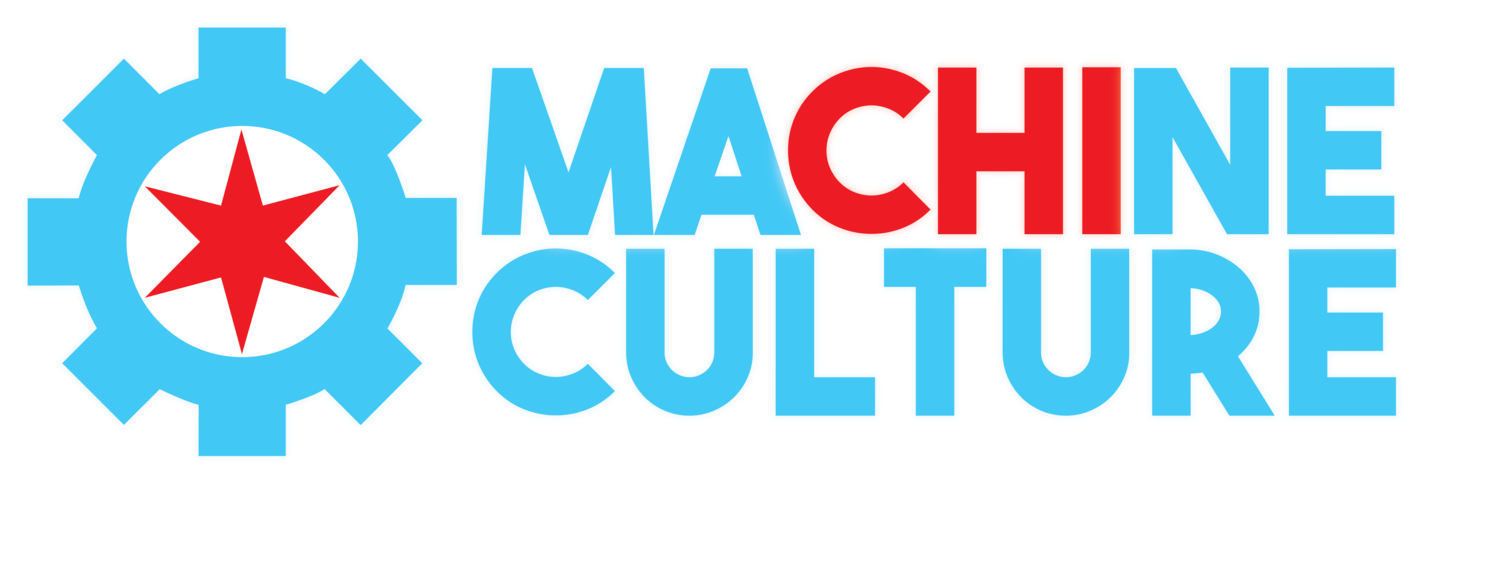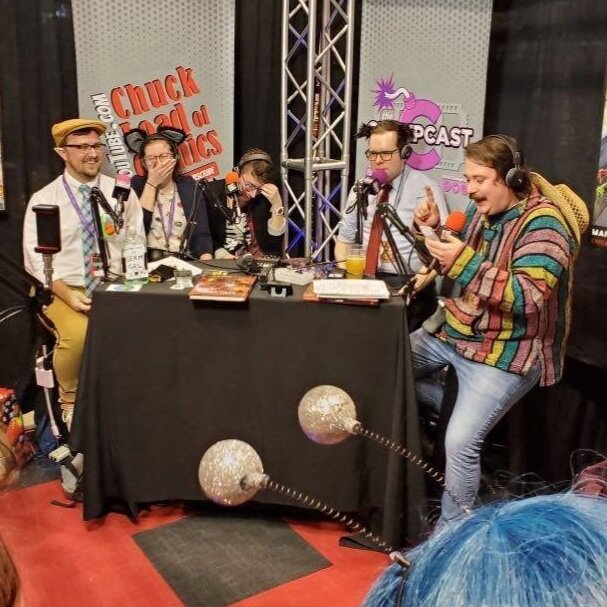When The World Rolls a Nat 1:
Coping during COVID-19
by Gwen Hope
The first two weeks of lockdown, my day revolved around moving from my bed to my living room where I had pushed all the sections of my couch together, a piece of furniture I’d lovingly dubbed, ‘Couch House.’ I thought to myself, “how could this not already be a fantasy world?! I rolled a nat 20! I never want this campaign to end!”
But, as week three began to rear its ugly head, reality had sunk in. This Stay-at-Home campaign really was going to be for a while, and I, as well as the rest of the party, need to find the best way to complete the quest - stay sane.
When Sunday rolled around, recording Desks and Dayjobs remotely terrified me. I hadn’t showered in a week, I hadn’t really talked to anyone, and honestly, I kind of forgot how to function outside of my pilgrimage to different parts of my studio apartment.
But then, PAZOW! Just like that, as the world of NPC was built by my friends, I wasn’t Gwen in the middle of a pandemic - I was Tory Mercita, Tabaxi Rogue, assistant manager of marketing at NPC inc. and I could do anything.
When Dungeons and Dragons was first published in 1974 by Tactical Studies Rules, the entire hand-assembled print run of 1,000 games sold out in 11 months. From there, D&D grew into the collective lexicon along with its various connotations - nerdy, satanic, elusive.
In light of the pandemic, I’ve found myself interacting with D&D in a brand new way - as one of my coping mechanisms. D&D provides a sense of control, a connection with my friends, and a way to improve problem solving.
Gary Allen Fines, current editor of the Social Psychology Quarterly and specialist in small group activities, wrote in his 1983 book titled ‘Shared Fantasy’ that one of the main reasons fantasy games are beneficial is because “games aid in increasing one’s sense of personal control or efficacy.”
When I was seventeen, I moved to a new city. Then a new country. Then all over and back again and so on and so forth for the last six years. Moving has always been my way of controlling my world and giving me a sense of purpose. I thought that if I could just move away, my problems would disappear and I would once again stand victorious, having full control of my limited world. It was, as I reflect in quarantine, an unhealthy coping mechanism that always left me unable to form crucial bonds and, nine out of ten times, left me pretty broke.
With D&D, I can move to my heart’s content, for free, with a group of my friends, wherever and whenever we want to go (as long as Hobert doesn’t mind DMing.) As Dave Arneson, co-designer of Dungeons and Dragons said, “The richness is not in just rolling the dice, the richness is in the characters and becoming part of this fantasy world.”
The same sense of accomplishment, sense of self and, ultimately, sense of control are present in both D&D and moving all over the world - but one leads me to addressing my situation, and the other leaves me stuck in my head and spiraling during the pandemic. A tempting choice in either direction.
Best of all, I can build lasting friendships and shared memories with my party while hanging out in the RPG world - and who doesn’t need more of that during Quarantimes?
Stéphane Daniau’s 2016 research article ‘The Transformative Potential of Role-Playing Games’ states in its conclusion that, “[RPG]s are particularly effective to foster knowledge acquisition, develop role-play skills, strengthen team building, encourage collaborative creativity, and explore one’s personal development.”
Perhaps one of my favorite aspects of D&D is creative socialization, something I miss from childhood friendships. A unique bond forms when we as a party create our own rules, our own world, our own specially agreed upon outline for our imagination to cling to and wrap around like an old forest covered in vines. Imagining weekly with my friends has kept me connected to them in a time of extreme isolation.
According to Gary Gygax, co-creator of D&D, “The essence of a role-playing game is that it is a group, cooperative experience. There is no winning or losing, but rather the value is in the experience of imagining yourself as a character in whatever genre you’re involved in, whether it’s a fantasy game, the Wild West, secret agents or whatever else. You get to sort of vicariously experience those things.”
In 2018, While working on AI’s ability to compose narratives with humans, Georgia Tech graduate student Lara Martin suggested programming some form of D&D to help educate the AI in ways that games like Chess or Go couldn’t. Martin deduced that the already existing dynamic of the DM and the party would be a perfect way to improve AI’s ability to create a narrative.
Each choice made in D&D requires taking into account all of a character’s abilities, the party’s abilities, your surroundings, and other factors that mirror’s real-world decision making in a safe and creative space.
After recording Desks and Dayjobs that Sunday, I was surprised by how much my attitude had improved. The light switches my extrovert personality thrives on had been flipped, and suddenly showering or doing the dishes didn’t feel like a catastrophe.
While my partner and I discussed our day, I explained excitedly about my character’s decisions that afternoon at NPC inc. How I didn’t remember my job and had to think on the fly, how I met a cool new friend in graphic design, how I got coffee before work with Stuart and Agnes and Maxwell. All of the decisions I made that day, however goofy or demonic, I could chalk up to Tory. At the end of the day, however, it was Gwen who reaped all the benifits. Gwen who got to feel a sense of normalcy. Gwen who got to feel a sense of community. It was Gwen, and Tory, who got to play a game for a few hours with friends and forget the world outside of NPC inc for just a little bit. And that’s pretty rad.




